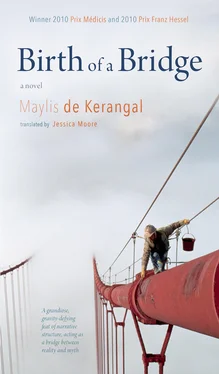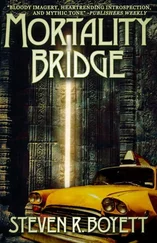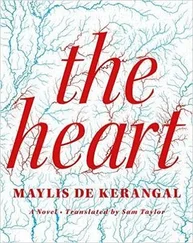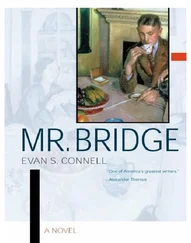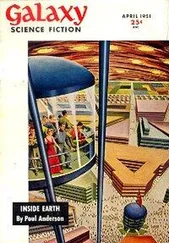People said being alone to such an extent, no one does that; they said it was a waste, unhealthy in the long run, a man like that, a force of nature; they imagined women deep within the consulates, beautiful women, innocent women, devoted women; they imagined young people, they imagined lice, an original sin, an origin at least, some intimate flaw from his childhood; they whispered that he was broken, at heart — though at the heart of what, no one knew. Plus he hardly ever went back to France (what about his mother? He must have a mother since he writes to her, doesn’t he think of her, then?) — he flew over the country with a charged silence, kept only the nationality inscribed on his passport, a sagely padded bank account, a taste for conversation and for a certain amount of comfort, and he never missed watching the Tour de France. People would have liked to know that he was seized by an inward experience, isolated, vulnerable even — that would have been so simple, so much easier to believe — a man as solid and deep as he was, with such a brutal passion for alcohol, is always hiding something; they would have liked it if he didn’t know how to love, if he were incapable of it, if he worked like a dog in order to forget. They would have liked it if he were melancholic.
BUT THOSE who had known him on the sites choked to hear this nonsense: fantasies of old ladies, cringe-worthy poems, sugary little clichés. They toppled this cardboard cut-out with a few shrugs and mocking glances, because they had actually seen him at work, had rubbed shoulders with the guy. They said: okay, it’s true, time is nothing to him, that which passes, that which flies, all that is nothing to him, doesn’t slip past or cause adherences or brackish fog — and is it precisely because we are alone in time, alone and losing at every turn, noses buried in our losses, in the sloshing bacillary liquids at the bottom of the bucket, in the tatters of sadness sewn to our fingertips like old bandages that must finally be torn off with our teeth? — he’s not immune, true, but he doesn’t think about it, isn’t interested, hardly has the luxury to, and couldn’t care less about origins, about history, has mixed his blood, thinks about death every day like everyone else and that’s all there is to it. They said: his time is counted in snaps of the fingers — uno! dos! tres! vámonos! — and here, they joined the action to the word, miming a starting signal that was already headed for the finish line, the goal, delivery of a work whose deadline penned in scarlet ink at the bottom of the work order lays out days according to a careful plan, according to a duly calculated phasing, according to contracts and seasons — the rainy season especially, and the nesting season — that one is never in his favour, as we’ll see. They said: his time is the present, it’s now or never, do it right, deal with the situation at hand, that’s his only moral and a lifetime’s work, it’s as simple as that. And also: he’s a hands-on kind of fellow, a grassroots man, that’s his element — he would even say so himself, eyes half-closed, cigarette dangling, mocking, would add without batting an eye that’s where the adventure is, that’s where the risks are, that’s where my body is alive — and with these words, he would beat his chest with two closed fists like a gorilla in a tropical forest — but sometimes, all joking aside, he would lift his head and say stormily, the thing I abominate is a utopia, a tidy little system, the quixotic jewel floating above the earth blah blah blah , it’s too closed, always too miniature, and so well oiled, it’s bad shit, take it from me, there’s nothing for me in that, there’s nothing there that interests me, nothing that gets me hard. My name is Georges Diderot and what I like is working with the real, juggling the parameters, being on the ground, all up in the face of things, that’s where I’m complete.
HE TAKES control of zones, excavates fields, occupies ground, raises up buildings, feeds himself with the multiple, the loquacious, the sonorous, with all the motley clutter and odours of skin, with the crowds in the megacities, with revolutionary unrest, with ovations in the stadiums, with the jubilation of carnivals, of processions, with the gentleness of wild animals watching the construction sites through forests of bamboo, with open-air cinemas at the edge of villages — the screen stretched into the night sky, those hours when spaces fit one inside the other and time plays within them — and with the barking of dogs at a bend in the road. Always outside, concentrating, empirical, disbelieving: the inner experience is never within, he says, laughing when those who are disappointed by his triviality badger him for more inwardness and more depth, it’s not a folding inward, it’s a tearing apart, and I like to tear it up.
WALKING IN THE VIOLET NIGHT
ON AUGUST 15, 2007,THE NEW YORK TIMES announced in its business section the construction of a bridge in Coca, a three-line newsflash in twelve-point lower case that slid by without attracting anything more than a few raised eyebrows — people thought: finally there will be some jobs; or: here we go, they’re off again with a policy of major construction projects, nothing more. But the engineering firms that had taken a blow during the economic crisis began to ramp up: their teams set to work researching, securing contacts within the companies that had sealed the deal, planting moles within them, all so they might place themselves in the ranking, in a good position — to provide workers, machines, raw materials, services of all kinds. But it was already too late — the die had been cast and the agreements sealed. These agreements were the result of a complicated and delicate selection process that, although expedited, still took two years to materialize in the form of official signatures at the bottom of contracts at least a hundred and fifty pages long. A series of phases that resembled a hurdles race: September 2005, Coca’s city council launches an international call for applications; February 2006, five companies make the shortlist and the call for bids is sent out; December 20, 2006, the bids are submitted; April 15, 2007, two companies are chosen as finalists; June 1, 2007, the name of the winner is announced by the president of the CNCB (Commission for the New Coca Bridge): Pontoverde — a consortium of companies from France (Héraclès Group), the United States (Blackoak Inc.), and India (Green Shiva Co.) — is the lucky winner.
The competition had involved an infernal number of hours and had placed hundreds of people around the world under immense pressure. There was excitement and there was damage. The engineers worked fifteen hours a day and the rest of the time had their BlackBerries or iPhones glued to their ears, shoved under the pillow at night, sound turned up when they were in the shower or sweating it out at squash or tennis, vibrate setting on high when they went to the movies, though very few of them went to the movies ’cause they couldn’t think about anything but that fucking bridge, that fucking proposal, they grew obsessed, excepted themselves from daily life. The weeks slid past, the children grew distant, the houses got filthy, and soon they weren’t touching any other bodies besides their own. There was overtime, depression, there were miscarriages and divorces, sexual encounters in workplace cubicles, but it wasn’t fun, it wasn’t playful, just opportunity making the thief, and the inability to resist the promise of pleasure when your neck seizes and your eyes are scorched after twelve hours in front of Excel spreadsheets, sudden fever transmuted into quick coitus, a little haphazard, and finally, even though they were excruciatingly disappointed by the announcement of the winner, the ones who lost were somewhat relieved: they had aged, they were exhausted, broken down, dead tired, not a drop of juice left except the tears of fatigue they let spill once alone in the car on the way home from work, when the radio played a rock song, something saturated with youth and the desire to let loose, “Go Your Own Way” by Fleetwood Mac or anything by the Beach Boys, and after nightfall when they were pulling into the garage, they didn’t get out right away but stayed instead in the darkness, headlights off, hands on the wheel, and suddenly imagined letting everything go, selling the house, paying off the credit cards hup , let’s go, everyone barefoot into the car, we’re heading to California.
Читать дальше
